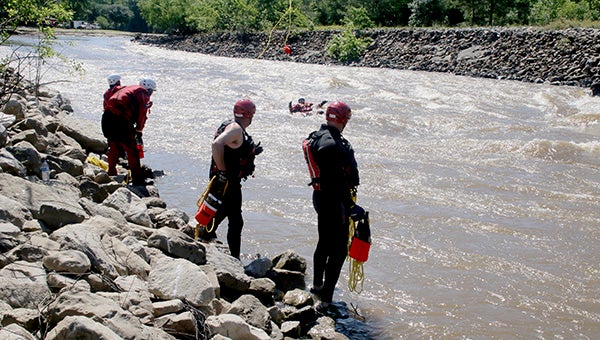Training for swift water
Published 7:00 am Saturday, May 7, 2016

PLAYING CATCH: Firefighters from Brandon, Mississippi participating in swift water training at the Wilson Slough took turns getting in the water and throwing rescue ropes to those pretending to be victims.
Photo by Jeremy Pittari
More than a dozen firefighters from the Brandon Fire Department were at Wilson Slough on the Pearl River conducting swift water training.
They arrived on Monday, and wrapped up the training on Friday.
Brandon Fire Department Division Chief Craig Nash said the training provided the emergency personnel with two levels of training, which covered how to protect themselves and rescue others during a flood situation involving fast moving water.
Nash said water moving at speeds faster than a mile and a half per hour is considered to be swift water. Water across the Pearl River’s slough during the past week was moving at about 10 miles per hour.
Typically when firefighters respond to a situation, they arrive with only turnout gear to fight a fire, which is heavy clothing that only becomes heavier when wet. In swift water rescue situations, they learn to use wetsuits, keep their heads above water and respect the water.
The training typically takes place annually, and almost always at the slough at Walkiah Bluff because it’s the best place to conduct the training in the state, Nash said.
During the training firefighters took turns jumping into the water while others threw ropes to the “victim.” It teaches them to react to a real world situation by attempting to reach a victim with anything at their disposal, and in a worst case scenario jump into the water themselves. They also got a first hand account at how when they grabbed the rope, the water rushed over their heads until they could situate themselves.
Being in water that is moving that fast also demonstrates to the firefighters how their bodies will react in that situation, Nash said.



